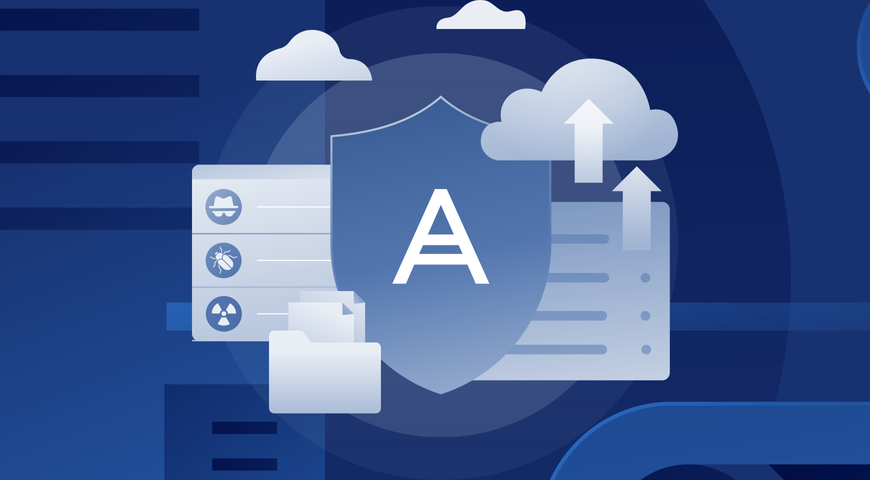Whether it’s lava flowing through the streets of Hilo, Hawaii or Storm Alberto flooding the southeastern United States, the dramatic footage of the past week captures more than the devastating power of nature – we’re seeing the loss of homes and businesses. When families and business owners are forced to evacuate, they must quickly decide which physical items to bring with them.
From family pictures to payroll records, a backup can provide critical consolation that not all will be lost, no matter how chaotic and terrifying the disaster.
How can I protect my data in the face of disaster?
As a rule, local backup is always a good starting point. It’s especially helpful when you need to recover something quickly following more common problems like hardware failure or our own inevitable “whoops!” moments.
But when it comes to disaster preparedness, having a backup copy of your most critical data stored safely off-site ensures your digital valuables can be retrieved once the emergency has passed. It also ensures remote access or recovery if you can’t return home for a while.
Begin at the beginning
The first step to preventing data loss is making digital copies – or backups. Whether you’re storing personal or business data, you should follow the 3-2-1 rule of backup – three copies of your data, two on different types of storage, and one stored off-site.
The primary copy of your data is located where you live/work most: on your desktop, laptop, smartphone, or tablet. The second copy can be retained on an external or portable drive – like an external hard drive, a USB or network attached storage (NAS) device.
Backing up data on local hardware often spares you software or hardware disaster woes and lets you recover from data loss relatively quickly with minimal cost.
Expect the unexpected
Thinking ahead, local backups aren’t enough if your office or home is damaged by fire, flooding, or lava-flow. That’s because the storage device holding your local backup is likely to suffer the same physical harm on such an occasion – putting your backup at risk.
Keeping a copy of your backup files off-site ensures that one version will survive even if your local copies are destroyed. The cloud is a convenient and secure option that many people use for their off-site storage.
Prioritize your backup
You should approach data-disaster preparedness as if you’re making decisions about what will go with you as the floodwaters rise. Focus on the data required to maintain your daily business or home life and then be sure to store those elements off-site.
As a homeowner, you might want digital copies of:
- Social Security cards
- Passports
- Health insurance cards
- Prescription information
- Tax records and information
- Homeowner policies
- Auto policies
- Life insurance policies
- Family photographs
If you're also a business owner, you might want uninterrupted digital access to:
- Incorporation and other legal documents or contracts
- Tax information
- Employee payroll Information
- Employee Health insurance information
- Access controls
- Computer databases
Follow through
Knowing specifically what data you value most is essential to disaster preparedness. But much like saying “buy a life raft”, if you don’t actually do it you could be in big trouble in an emergency.
Having an easy-to-use and safe cloud backup solution ensures you have the lifeline needed to reliably access and restore your critical data – no matter what.
You’re safe off-site in the cloud
If you are considering cloud-enabled personal backup solutions, Acronis True Image should be on your list. Independently proven to be the fastest, most reliable, and secure personal backup available, a subscription to Acronis True Image includes continuous cloud backup, which means any recent changes and additions to your data is automatically captured.
The anywhere access of the cloud also makes your family’s must-have health and financial information accessible from any device. If you need to evacuate immediately, you’ll still be able to retrieve what you need.
Meanwhile, Acronis Backup for business allows you to copy individual files and emails, and create a full image backup of your operating system (OS), including recent updates to it, all your applications, and all your settings. It makes storing all of this valuable data off-site in the cloud simple. Ultimately, this means that restoring everything you need to keep your business running becomes a snap – so you can re-establish operations faster, retain customer trust and protect the company’s reputation.
Both solutions also feature Acronis’ artificial intelligence-based anti-ransomware defense, which actively protects your data, applications and systems from unauthorized modification or encryption.
Final thought
The recent headlines remind us that data loss can happen at any time, for any reason -- including unforeseen natural disasters. In an emergency, your focus should be saving your life and the lives of those you love. Having a cloud backup solution can ensure your digital life is safe, too. With a reliable, secure and easy-to-use cloud solution in place, you can regain access to all of your must-have personal or business data – and help restore normalcy for you, your family and your company.
About Acronis
A Swiss company founded in Singapore in 2003, Acronis has 15 offices worldwide and employees in 50+ countries. Acronis Cyber Protect Cloud is available in 26 languages in 150 countries and is used by over 20,000 service providers to protect over 750,000 businesses.




